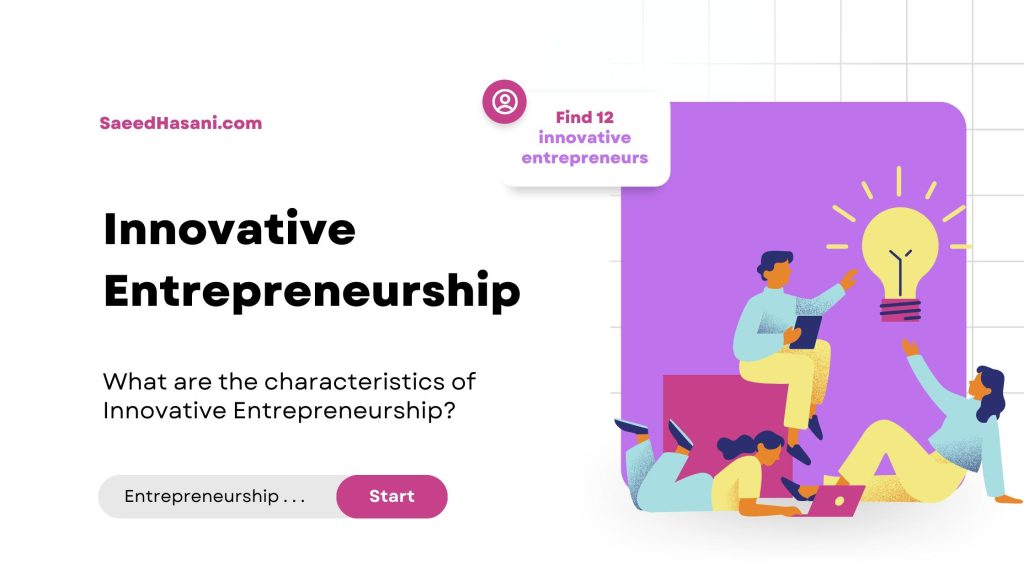How to increase insurance agent productivity? Comprehensive 27 ways!

Are you on a quest to skyrocket insurance agent productivity and elevate your agency above the competition? Uncover 27 transformative strategies that integrate technology, personal development, and cutting-edge sales techniques specifically designed to boost insurance agent productivity.
Delve into our expert guide and unlock the potential of enhancing efficiency, increasing client satisfaction, and achieving remarkable growth in the competitive insurance landscape.
27 ways to increase insurance agent productivity:
1. Leverage CRM Tools
Customer Relationship Management (CRM) tools are vital for modern insurance agencies aiming to enhance agent productivity.
These platforms offer a centralized database for storing all client interactions, policies, and personal information, making it easier for agents to track leads, follow up on prospects, and manage client relationships effectively.
By automating data entry and retrieval, CRM tools reduce the time agents spend on administrative tasks, allowing them to focus more on sales and client engagement.
Furthermore, CRM software often includes analytics features that help agents analyze client behavior, identify sales opportunities, and tailor their approach to meet individual client needs.
The use of CRM tools also facilitates better communication within teams, enabling agents to share insights and collaborate on sales strategies.
Overall, by streamlining workflow and providing valuable client insights, CRM tools significantly boost agent productivity, sales efficiency, and customer satisfaction.
2. Adopt Digital Marketing
Digital marketing is a game-changer for insurance agents looking to boost productivity and reach more clients. It encompasses a variety of online marketing strategies, including content marketing, email campaigns, social media advertising, and search engine optimization (SEO).
By adopting digital marketing, agents can create a strong online presence, making it easier for potential clients to find them and learn about their services.
Effective use of email marketing allows agents to maintain regular contact with clients, providing updates on new policies, industry news, and personalized advice. Social media platforms offer a dynamic space for agents to engage with clients, share valuable content, and build their professional network.
Moreover, SEO strategies improve the visibility of their websites in search engine results, attracting more organic traffic. Digital marketing not only helps agents generate leads more efficiently but also enables them to establish trust and credibility online.
By investing time and resources in digital marketing, agents can significantly increase their productivity, expand their client base, and stay competitive in the digital age.
3. Time Management Skills
Effective time management is crucial for insurance agents to maximize productivity and achieve their sales targets. Mastery of time management skills enables agents to prioritize tasks, set realistic goals, and allocate their time efficiently between client meetings, administrative duties, and sales activities.
Techniques like the Pomodoro Technique, which involves working in focused intervals followed by short breaks, can help agents maintain high levels of concentration and reduce burnout.
The Eisenhower Box, a tool for prioritizing tasks based on urgency and importance, assists agents in focusing on activities that directly contribute to their sales goals.
Additionally, planning the day in advance, setting specific time slots for checking emails, and using digital calendars for scheduling can prevent time wastage and ensure a balanced workload.
By developing strong time management skills, agents can improve their efficiency, handle multiple clients effectively, and achieve a better work-life balance, leading to increased job satisfaction and higher sales performance.
4. Automate Routine Tasks
Automation of routine tasks through technology is a critical factor in increasing the productivity of insurance agents. Tasks such as scheduling appointments, sending out payment reminders, processing paperwork, and updating client records can consume a significant portion of an agent’s day.
By implementing software solutions that automate these processes, agents can free up valuable time to focus on more strategic activities, like client acquisition and relationship building.
Automation tools can also help in generating quotes, managing claims, and underwriting policies more efficiently, reducing the turnaround time for clients and enhancing their satisfaction.
Furthermore, automation contributes to minimizing human error, ensuring a higher accuracy level in documentation and financial transactions. As agents leverage these tools, they can provide faster, more reliable service, making them more competitive.
In an era where customer expectations lean towards immediate gratification, the ability to use automation to deliver prompt and accurate services can significantly enhance an agent’s productivity and, by extension, the profitability of the insurance business.
5. Continuous Training
Continuous training and development are pivotal for keeping insurance agents at the peak of their productivity. The insurance industry is constantly evolving, with new products, regulations, and technologies emerging regularly.
Continuous training ensures that agents are up-to-date with the latest trends, tools, and techniques necessary to serve their clients effectively. It also encompasses sales training, customer service etiquette, and advanced courses in financial planning and risk assessment.
Providing agents with access to webinars, online courses, conferences, and workshops encourages lifelong learning and professional growth. This ongoing education not only enhances their knowledge base but also boosts their confidence in handling diverse client needs and complex scenarios.
Furthermore, training programs can foster a culture of excellence and innovation within the agency, inspiring agents to explore new strategies for client engagement and retention.
Ultimately, well-trained agents are more adept at navigating the challenges of the insurance landscape, leading to improved sales outcomes and higher client satisfaction levels.
6. Set Clear Goals
Setting clear, measurable goals is essential for guiding insurance agents toward higher productivity and performance. Goal setting provides a roadmap for agents, outlining what needs to be achieved within specific timelines.
These goals can range from daily activity targets, such as the number of calls made or meetings scheduled, to longer-term objectives, like quarterly sales quotas or client retention rates.
Clear goals help agents focus their efforts on activities that directly contribute to their success, allowing for better time and resource allocation. Moreover, goal setting can be highly motivating, especially when agents are encouraged to set their own goals within the broader framework of the agency’s objectives.
This empowers them to take ownership of their performance and fosters a sense of accountability. Regular reviews of these goals, coupled with feedback sessions, can further enhance productivity by identifying areas for improvement and celebrating achievements.
Ultimately, clear and challenging yet achievable goals can drive agents to stretch their capabilities and achieve greater success.
7. Enhance Product Knowledge
Product knowledge is foundational to the productivity and effectiveness of insurance agents. A thorough understanding of the insurance products offered, including their benefits, limitations, coverage options, and pricing, equips agents to advise clients accurately and confidently.
Enhanced product knowledge enables agents to identify and suggest the most suitable insurance solutions tailored to the unique needs of each client, facilitating higher client satisfaction and loyalty.
Furthermore, agents who are well-versed in their product offerings can handle objections more effectively, negotiate better, and close sales more efficiently. Continuous learning and staying updated with new product launches, enhancements to existing policies, and changes in regulations are crucial.
Providing agents with access to product training sessions, detailed product manuals, and regular updates can help maintain a high level of product knowledge.
This investment in knowledge not only empowers agents to perform better but also positions them as trusted advisors in the eyes of their clients, leading to increased referrals and a stronger client base.
8. Personalized Customer Service
Personalizing customer service is key to differentiating insurance agents in a competitive market. Tailoring communication and services to meet individual client preferences and needs can significantly enhance client engagement and satisfaction.
Personalized customer service involves understanding the client’s history, preferences, and future needs, allowing agents to offer customized advice and solutions. This approach strengthens client relationships, encouraging loyalty and long-term retention.
Agents can leverage CRM tools to track client interactions and preferences, enabling them to anticipate needs and offer personalized services proactively.
Regularly checking in with clients, remembering important dates or milestones, and being responsive and attentive to their concerns are practices that contribute to a personalized service experience.
By focusing on creating a personal connection and delivering value beyond just selling policies, agents can increase client satisfaction, generate positive word-of-mouth, and ultimately, drive more sales.
9. Use Mobile Applications
The utilization of mobile applications is a strategic approach to increase insurance agent productivity by offering flexibility and instant access to information.
Mobile apps designed for insurance agents can include features such as access to client profiles, policy details, claims processing tools, and real-time communication channels.
These apps enable agents to manage their work from anywhere, respond to client inquiries promptly, and update client records on the go. Moreover, mobile applications can facilitate quicker, more efficient on-site assessments and claims processing, improving customer service during critical times.
The convenience of mobile technology allows agents to spend more time in the field, meeting prospective and current clients, thereby increasing opportunities for sales and client engagement.
Adopting mobile technology also reflects an agency’s commitment to leveraging modern solutions to improve service delivery, positioning the agency as forward-thinking and client-focused.
10. Focus on Health and Wellbeing
The health and well-being of insurance agents are crucial for sustained productivity and high performance. Recognizing the demanding nature of sales roles, agencies can implement programs and policies that promote a healthy work-life balance, reduce stress, and prevent burnout.
Encouraging regular breaks, providing access to mental health resources, and promoting physical wellness programs are ways to support agent well-being.
Flexible working hours and the option for remote work can also contribute to a healthier work environment by accommodating personal needs and reducing commute-related stress.
Agencies that prioritize the health and well-being of their agents not only foster a more positive and productive work culture but also improve job satisfaction and retention rates.
When agents feel supported in their personal and professional lives, they are more motivated, engaged, and ultimately, more successful in their roles.
11. Feedback and Recognition
Feedback and recognition are powerful tools that directly impact insurance agents’ motivation and productivity. Regular, constructive feedback helps agents understand their strengths and areas for improvement, enabling them to refine their approach and enhance their performance over time.
Recognizing and rewarding agents for their achievements and hard work, whether through formal awards, public acknowledgment, or financial incentives, can significantly boost morale and encourage a culture of excellence.
Recognition programs should be designed to celebrate not just sales success but also exceptional customer service, innovation, and teamwork. This fosters a holistic approach to performance, encouraging agents to excel in all aspects of their roles.
Moreover, involving agents in the feedback process can provide valuable insights into potential improvements in workflows, training, and support from the management.
By actively listening to their agents and acknowledging their contributions, agencies can build a more engaged, committed, and productive workforce.
12. Streamline Communication
Efficient communication within the agency and with clients is crucial for enhancing productivity among insurance agents. Streamlining communication involves adopting tools and practices that facilitate clear, concise, and effective exchange of information.
This can include implementing unified communication platforms that integrate email, instant messaging, video conferencing, and voice calls to reduce the time spent switching between applications.
Clear communication protocols can also help minimize misunderstandings and ensure that important information is shared promptly and accurately.
For client communications, personalizing interactions and using the client’s preferred communication channels can lead to more productive and satisfying exchanges. Agencies should also encourage open lines of communication within teams, allowing for easy collaboration, knowledge sharing, and support.
By prioritizing efficient communication, agencies can improve operational efficiency, enhance client satisfaction, and foster a more cohesive and productive work environment.
13. Networking Opportunities
Networking is a vital aspect of an insurance agent’s professional development and productivity. Encouraging agents to engage in networking opportunities can open doors to new client prospects, partnerships, and insights into industry trends and best practices.
Participation in industry conferences, seminars, online forums, and local business events allows agents to connect with peers, experts, and potential clients.
Networking can also provide agents with a broader perspective on the insurance market, innovative products, and emerging technologies, enabling them to offer more value to their clients.
Agencies can support their agents’ networking efforts by providing resources, covering participation fees for events, and encouraging active involvement in professional associations.
Building a strong professional network not only helps agents in acquiring new business but also in developing a support system for advice, mentorship, and collaboration.
14. Collaborative Team Environment
Creating a collaborative team environment is essential for maximizing the productivity of insurance agents. Collaboration encourages the sharing of ideas, strategies, and solutions, leading to more innovative and effective approaches to challenges.
Agencies can foster collaboration by promoting team-based projects, encouraging cross-departmental interactions, and using collaborative tools and software that facilitate easy sharing and management of information.
Recognizing and rewarding teamwork can also motivate agents to work together towards common goals.
In a collaborative environment, agents can benefit from the diverse skills and perspectives of their colleagues, leading to improved decision-making and problem-solving.
Additionally, a culture of collaboration can enhance job satisfaction and loyalty among agents, as they feel valued and supported by their peers and the organization. By prioritizing collaboration, agencies can create a more dynamic, adaptable, and high-performing team.
15. Optimize Lead Generation
Optimizing lead generation strategies is crucial for increasing insurance agents’ productivity by ensuring a steady flow of potential clients.
Effective lead generation involves a combination of traditional methods, such as referrals and networking, and digital marketing techniques, like SEO, content marketing, and social media advertising.
By diversifying lead generation efforts, agents can reach a broader audience and tap into various client segments. Implementing lead scoring and management systems can also help agents prioritize their efforts, focusing on leads with the highest conversion potential.
Additionally, training agents in lead nurturing practices can improve conversion rates, turning prospects into clients more efficiently. Agencies can further support their agents by providing access to lead generation tools and resources, enabling them to focus on high-value activities.
By continuously refining and optimizing lead generation strategies, agencies can boost agents’ productivity and drive business growth.
16. Utilize Analytics and Data
Utilizing analytics and data significantly enhances insurance agents’ productivity by providing insights into customer behavior, market trends, and the effectiveness of sales strategies.
Advanced data analytics tools can help agents identify high-value client segments, predict customer needs, and tailor their sales approaches accordingly. By analyzing historical data, agents can also recognize patterns and opportunities for cross-selling and upselling, increasing customer lifetime value.
Furthermore, data-driven insights can guide agents in optimizing their daily schedules, focusing their efforts on the most promising leads and activities. Agencies should invest in training their agents to understand and interpret data analytics, enabling them to make informed decisions quickly.
Additionally, incorporating real-time analytics into CRM systems can offer agents immediate access to client insights, enhancing customer interactions and improving conversion rates.
Leveraging data and analytics empowers agents to work smarter, not harder, leading to increased productivity and better business outcomes.
17. Incentive Programs
Implementing incentive programs is a proven strategy to boost insurance agent productivity. These programs motivate agents by rewarding them for achieving specific performance targets, such as sales quotas, customer satisfaction scores, or retention rates.
Effective incentive programs are well-designed to align with the company’s goals, ensuring that agents’ efforts contribute directly to the agency’s success.
Incentives can range from monetary rewards, commission bonuses, and profit-sharing schemes to non-monetary rewards like additional vacation days, professional development opportunities, and public recognition.
Tailoring incentive programs to meet the diverse motivations and preferences of agents can further enhance their effectiveness. Regularly reviewing and adjusting these programs based on performance data and agent feedback ensures they remain relevant and motivating.
By directly linking rewards to performance, incentive programs encourage a high-performance culture, driving productivity and fostering a sense of achievement among agents.
18. Adopt AI and Machine Learning
Adopting artificial intelligence (AI) and machine learning technologies can dramatically increase the productivity of insurance agents by automating complex processes, providing predictive insights, and personalizing customer interactions.
AI-driven chatbots and virtual assistants can handle routine customer inquiries, freeing up agents to focus on more complex and high-value activities.
Machine learning algorithms can analyze vast amounts of data to identify patterns and predict customer needs, enabling agents to offer proactive and tailored insurance solutions. AI can also streamline the underwriting process, making risk assessment more accurate and efficient.
Training agents to leverage AI tools in their sales and customer service processes can enhance their capabilities, allowing them to serve clients more effectively and efficiently.
As AI and machine learning technologies continue to evolve, insurance agencies that invest in these tools can gain a competitive edge, improving agent productivity and driving business innovation.
19. Efficient Policy Management Systems
Efficient policy management systems are essential for maximizing insurance agents’ productivity by streamlining the end-to-end management of insurance policies.
These systems allow agents to quickly access policy information, process applications, manage renewals, and handle claims, reducing the time spent on administrative tasks.
Modern policy management solutions are integrated with underwriting, billing, and customer service modules, providing a comprehensive view of each customer’s portfolio.
This integration ensures that agents have all the necessary information at their fingertips, improving accuracy and speeding up response times.
By automating routine processes, such as document generation and compliance checks, policy management systems also help minimize errors and reduce operational risks.
Agencies that invest in scalable and user-friendly policy management systems can enhance their agents’ efficiency, improve customer satisfaction, and achieve greater business agility.
20. Enhance Sales Techniques
Enhancing sales techniques is critical for improving insurance agents’ productivity and effectiveness. This involves training agents in advanced sales methodologies, such as consultative selling, which focuses on building relationships and understanding customer needs to provide tailored solutions.
Developing emotional intelligence skills can also help agents better connect with clients, navigate objections, and close deals more effectively.
Incorporating social selling techniques, and leveraging social media platforms to engage with prospects and establish thought leadership, can also broaden an agent’s reach and influence. Furthermore, training in negotiation tactics and the psychology of selling can provide agents with a competitive edge.
Continuous improvement in sales techniques, supported by regular training and coaching, ensures that agents stay at the forefront of industry best practices, enabling them to achieve higher conversion rates and foster long-term client relationships.
21. Personal Branding
Personal branding for insurance agents is a powerful strategy to increase visibility, establish credibility, and attract more clients. Agents who invest in building their personal brand differentiate themselves in a crowded market by highlighting their unique expertise, values, and experiences.
This involves creating a consistent professional image across all platforms, from social media profiles to business cards and websites. Sharing insightful content, such as articles, blogs, and videos, on insurance topics can establish agents as knowledgeable leaders in their field.
Engaging with the community through workshops, seminars, or online forums further enhances their reputation and network. Personal branding also encompasses delivering exceptional service, as client testimonials and word-of-mouth referrals are invaluable assets.
By developing a strong personal brand, agents not only attract more clients but also build trust and loyalty, leading to higher retention rates and sales growth.
22. Emphasize Client Retention
Client retention is as crucial as acquisition for maintaining and increasing insurance agents’ productivity. Retaining clients requires a deep understanding of their changing needs and life situations, providing timely and relevant insurance solutions.
Regular communication, personalized check-ins, and providing added value through informative content can keep clients engaged and satisfied. Implementing loyalty programs or offering incentives for renewals can also enhance retention rates.
Efficient service during claims processing, demonstrating empathy, and swift resolution of issues is key to sustaining long-term relationships.
By prioritizing client retention strategies, agents can ensure a stable revenue base, reduce the cost of acquisition, and leverage satisfied clients for referrals, driving productivity and profitability.
23. Innovative Product Development
Staying ahead in the competitive insurance market requires constant innovation in product development. Insurance agents play a critical role in identifying client needs and market gaps through their direct interactions with clients.
Encouraging agents to provide feedback on customer trends and preferences can inform the development of innovative insurance products and services.
Tailored solutions that address specific client segments or emerging risks, such as cyber insurance or wellness-focused health policies, can differentiate an agency in the market.
Agents equipped with unique and flexible insurance solutions can better meet client needs, enhancing client satisfaction and attracting new business. Moreover, being part of an agency known for innovation can boost agents’ morale and motivation, contributing to their productivity and success.
24. Flexible Working Arrangements
Flexible working arrangements are increasingly recognized for their positive impact on productivity and job satisfaction. For insurance agents, the ability to work remotely or choose flexible hours can lead to a better work-life balance, reduced stress, and increased focus and creativity.
Technology plays a pivotal role in enabling this flexibility, allowing agents to access client data, communicate with clients, and perform their duties from anywhere.
Flexible working conditions can attract top talent, retain experienced agents, and accommodate different working styles and personal commitments.
Agencies that support flexible work demonstrate a commitment to their employees’ well-being, fostering a supportive culture that can drive higher performance and dedication among agents.
25. Peer Mentoring
Peer mentoring is a valuable strategy for enhancing insurance agent productivity. By pairing less experienced agents with seasoned professionals, agencies can facilitate knowledge sharing, skill development, and faster onboarding.
Mentees can learn best practices, sales strategies, and client management skills, reducing the learning curve and increasing their confidence. Mentors, on the other hand, can refine their leadership skills and gain fresh perspectives.
This collaborative learning environment encourages continuous professional growth, fosters a supportive culture, and enhances team cohesion.
Implementing a structured peer mentoring program, with clear objectives and regular feedback sessions, can maximize its benefits for both mentors and mentees, contributing to the overall productivity of the agency.
26. Focus on Niche Markets
Specializing in niche markets offers insurance agents the opportunity to become experts in specific areas, differentiating themselves from competitors. By focusing on particular industries, demographics, or types of coverage, agents can develop deep insights into the unique risks and needs of these segments.
This specialization enables agents to provide highly tailored advice, build stronger relationships, and offer innovative solutions that generalist agents may not. Niche specialization can also lead to more effective marketing strategies, as agents can target their messaging and outreach efforts more precisely.
Establishing authority in a niche market can attract more qualified leads, enhance client loyalty, and enable agents to command higher premiums, significantly boosting their productivity and earnings.
27. Implement Cloud Computing
Cloud computing has revolutionized the way insurance agencies operate, offering scalable, flexible, and cost-effective solutions for data storage, processing, and collaboration.
By implementing cloud-based systems, agents can access critical business applications and client data from anywhere, enhancing their mobility and responsiveness. Cloud computing also facilitates real-time collaboration among team members, improving efficiency and speeding up decision-making processes.
The security features of cloud platforms ensure that sensitive client data is protected, while compliance with industry regulations is maintained. Adopting cloud computing can reduce IT costs, streamline operations, and enable agencies to adapt quickly to market changes.
Agents working in a cloud-enabled environment can focus more on client-facing activities and strategic sales initiatives, rather than being bogged down by administrative tasks or system inefficiencies.
This accessibility and efficiency ultimately lead to improved customer service and satisfaction, as agents can quickly address inquiries, process claims, and update policies, ensuring a seamless client experience.
Conclusion
In conclusion, improving insurance agent productivity requires a holistic approach that integrates technology, personal development, and strategic business practices.
From leveraging CRM tools and adopting digital marketing strategies to focusing on health and well-being and implementing cloud computing, each strategy contributes to creating a more efficient, effective, and engaged insurance workforce.
By embracing these comprehensive methods, insurance agencies can not only increase their agents’ productivity but also enhance their ability to meet client needs, navigate market changes, and achieve sustained business growth.







Responses